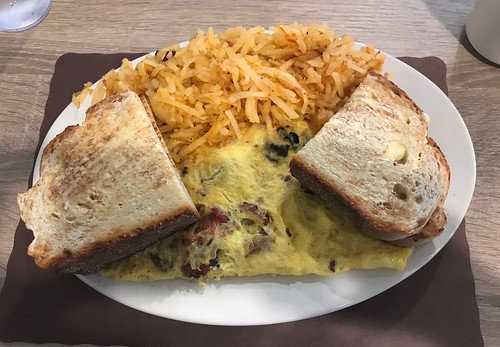Personal in the human literature as the `warmglow’ effect. Actions that
Personal inside the human literature because the `warmglow’ impact. Actions that strengthen another’s condition come with pleasant feelings (Andreoni 989), to ensure that humans report feeling great once they do excellent and show activation of rewardrelated brain places (Harbaugh et al. 2007). It will likely be vital to ascertain if the identical selfreward method extends to other primates.4. CONSTRAINTS ON COOPERATION AND ALTRUISM (a) Inequity aversion and tolerance How skewed can a payoff distribution get just before it starts to undermine cooperation Fehr Schmidt (999) have argued that the wellknown human aversion to disadvantageous inequity relates to the should keep cooperation. Similarly, cooperative animals may be guided by a set of expectations about payoff distribution. As a result, de Waal (996, p. 95) proposedF. B. M. de Waal M. SuchakReview. Primate prosocial behaviourfamiliarity and bonding tolerance cooperation and prosociality discovered benefitsa sense of social regularity, defined as `a set of expectations in regards to the way in which oneself (or other people) needs to be treated and how sources should be divided’. Note that the expectations aren’t specified: they may be speciestypical. Some primates are so hierarchical that subordinate individuals can not expect something, whereas in other species dominant individuals are ready to share and, correspondingly, the species PubMed ID:https://www.ncbi.nlm.nih.gov/pubmed/22029416 has evolved a repertoire of begging signals to extract meals from them. These animals negotiate their share and may well protest if it is also little. In one particular experiment, capuchin monkeys were paired to perform a simple job 25 instances within a row, alternating  between both of them. Food rewards varied from low worth (a cucumber piece) to higher value (a grape). In equity tests, both the topic and its partner did the identical perform for exactly the same lowvalue meals. In inequity tests, the topic received lowvalue rewards, whereas its companion received highvalue rewards for the exact same work. It turned out that the capuchins have been far significantly less ML281 prepared to complete the process or accept the reward if their companion received a better deal. Subjects getting the lowvalue reward in inequity tests showed each passive adverse reactions (i.e. refusal to perform or refusing the reward) and active adverse reactions (i.e. throwing out the token or the reward; Brosnan de Waal 2003). It might be argued that the mere presence of highvalue food is what triggers these reactions (e.g. a contrast effect; Roma et al. 2006; Silberberg et al. 2009). In other words, subjects are holding out for anything much better. The initial argument against this option is that if food is merely created out there, devoid of any activity, there is no sign of inequity aversion even within the very same monkeys as those on the original study (e.g. Dubreuil et al. 2006; Dindo de Waal, 2007; Fontenot et al. 2007). The second counterargument is that displaying grapes ahead of every equity trial, in which each monkeys acquire cucumber, has no impact: the monkeys do not work any much less for cucumber following getting noticed grapes. The grapes must serve as rewards for the companion to affect a monkey working for cucumber, which implies that the social aspect in the job plays a essential role (van Wolkenten et al. 2007). Other taskoriented research have discovered indicators of inequity aversion in chimpanzees (Brosnan et al. 2005, 200a), capuchin monkeys (Fletcher 2008; Takimoto et al. 200) and domestic dogs (Range et al. 2008), whereas 1 study yielded mixed final results, with an apparent inequity response in bonobos but not.
between both of them. Food rewards varied from low worth (a cucumber piece) to higher value (a grape). In equity tests, both the topic and its partner did the identical perform for exactly the same lowvalue meals. In inequity tests, the topic received lowvalue rewards, whereas its companion received highvalue rewards for the exact same work. It turned out that the capuchins have been far significantly less ML281 prepared to complete the process or accept the reward if their companion received a better deal. Subjects getting the lowvalue reward in inequity tests showed each passive adverse reactions (i.e. refusal to perform or refusing the reward) and active adverse reactions (i.e. throwing out the token or the reward; Brosnan de Waal 2003). It might be argued that the mere presence of highvalue food is what triggers these reactions (e.g. a contrast effect; Roma et al. 2006; Silberberg et al. 2009). In other words, subjects are holding out for anything much better. The initial argument against this option is that if food is merely created out there, devoid of any activity, there is no sign of inequity aversion even within the very same monkeys as those on the original study (e.g. Dubreuil et al. 2006; Dindo de Waal, 2007; Fontenot et al. 2007). The second counterargument is that displaying grapes ahead of every equity trial, in which each monkeys acquire cucumber, has no impact: the monkeys do not work any much less for cucumber following getting noticed grapes. The grapes must serve as rewards for the companion to affect a monkey working for cucumber, which implies that the social aspect in the job plays a essential role (van Wolkenten et al. 2007). Other taskoriented research have discovered indicators of inequity aversion in chimpanzees (Brosnan et al. 2005, 200a), capuchin monkeys (Fletcher 2008; Takimoto et al. 200) and domestic dogs (Range et al. 2008), whereas 1 study yielded mixed final results, with an apparent inequity response in bonobos but not.
http://calcium-channel.com
Calcium Channel
